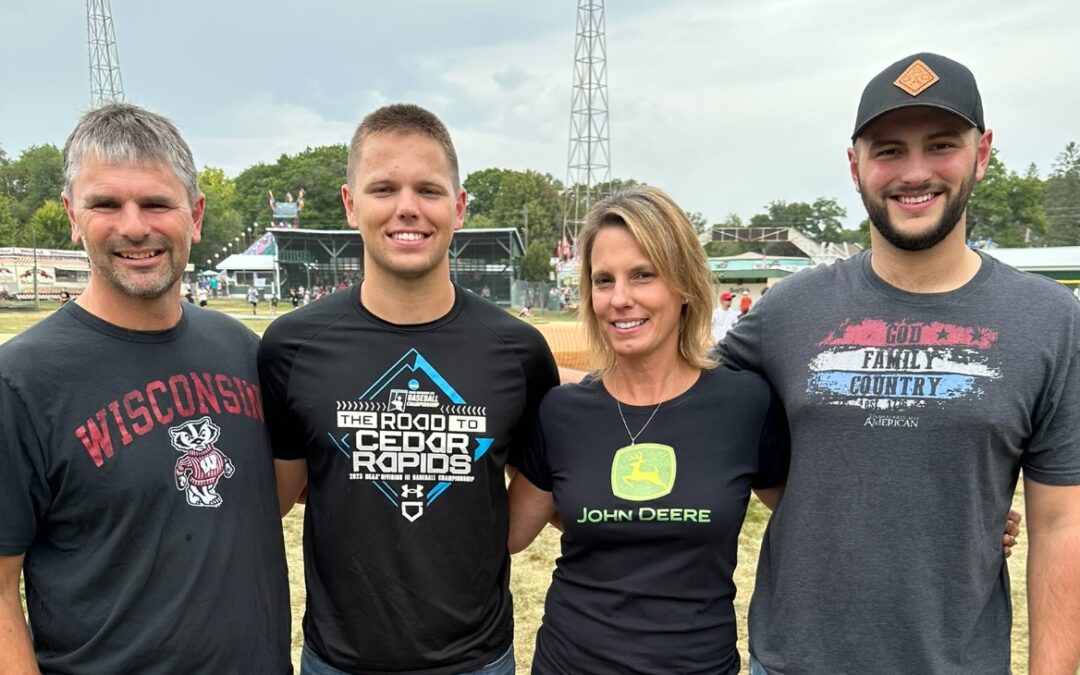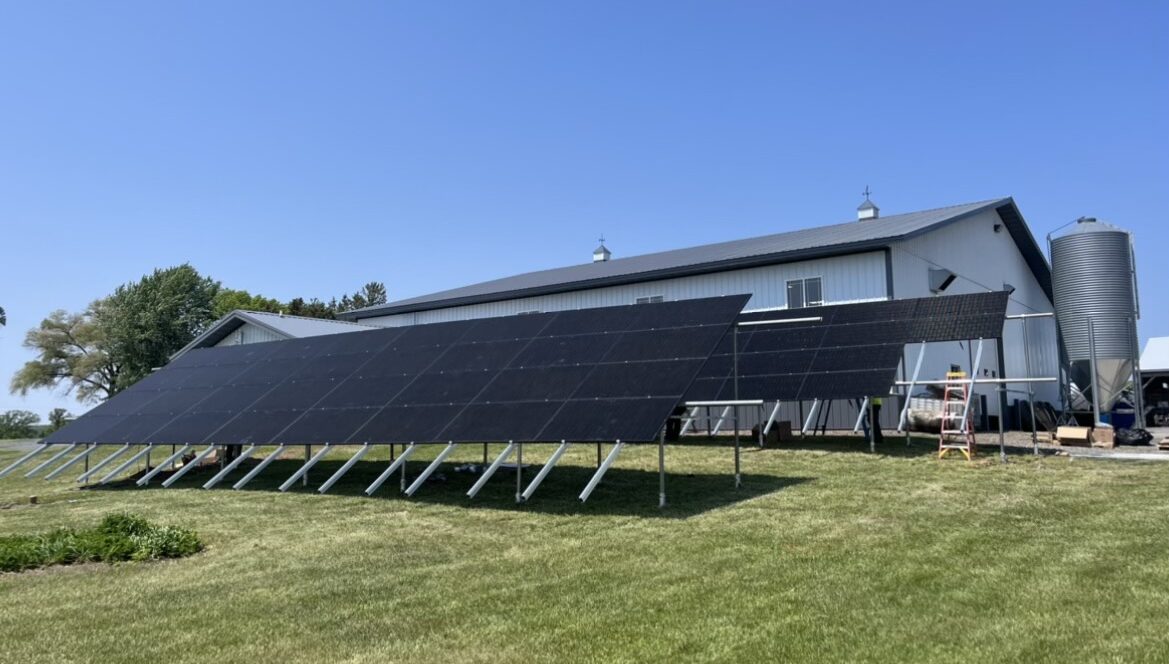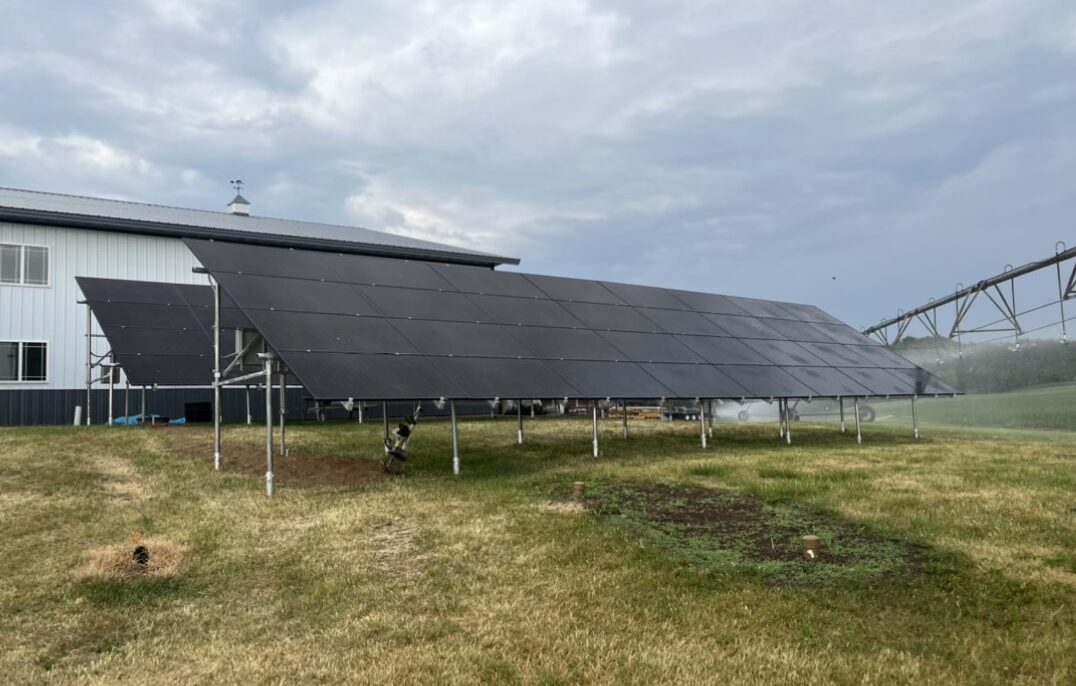
Ag and Business Solar Partners: Forward Thinking on the Farm
Photo Credit: Brett Carlson – Owner and Founder of Ag & Business Solar Partners
In 2020, Brett Carlson and his dad, Carl, decided to install solar panels on the farm using the financial support offered through the Rural Energy for America Program (REAP). The complexities of this process inspired the creation of his company, Solar and Ag Business, whose goal is to help farmers and small businesses reap the benefits of solar energy.
The Rural Energy for America Program (REAP) is a federal program that provides financial assistance to agricultural producers and rural small businesses to make the switch to renewable energy. The REAP Grant was established in 2002, and up until 2023, the grant covered 25% of the total project costs. The grant was expanded to cover 40% of the total project cost in early 2023 and then increased to 50% of total project costs thanks to additional funding from the Inflation Reduction Act (IRA). When you factor in tax credits and depreciation, Wisconsin farmers and small businesses can install solar at a fraction of the cost.
Solar energy can reduce energy bills, benefitting the bottom lines for farms and rural small businesses that are often looking for additional efficiencies to help keep their businesses viable.
“Of the many volatile expenses that come with farming, this is one that we can control. The initial overhead cost of installing solar was a barrier that most farmers weren’t able to overcome until now,” Brett said.
The benefits of the REAP Grant to rural America are significant, but the lack of education about solar in rural areas and the complexities of the REAP grant application itself presents a challenge. Brett experienced this firsthand when he helped his parents apply for the REAP grant. Brett explained that he and his parents left that experience feeling frustrated as they were pushed to outsource help for the REAP application to “predatory consultants and grant writers,” who knew that most farmers could not navigate grant jargon on their own.

AG and Solar Partners grew from that frustration, and now Brett helps navigate federal incentives and tax benefits and connect farmers and small business owners to trustworthy clean energy businesses. One of Brett’s clients, Dan Tronrud, is an auto shop owner in Wolf River. Dan praises Brett’s passion for making solar energy accessible to his community.
When asked about his experience with applying for the REAP Grant, Dan exclaimed, “He’s excited, and he gets me excited. He knows everything about solar and electricity and is so good at breaking it down. There are no questions left unanswered.”
With the help of Ag and Business Solar, Dan was able to submit his application for the December 2023 grant cycle and hopes to bring solar panels to his shop.
Brett’s background of growing up on his family farm and then going on to study business and entrepreneurship offers him a unique skill set that empowers him to navigate complex conversations with business partners, consultants, and farmers around the intricacies of implementing solar energy on a commercial scale while taking advantage of federal incentive tax benefits.
“As a business owner, the transition to solar makes total sense,” Brett said. “Politics aside, look at the numbers, they work. The math makes sense. It’s a no-brainer with the REAP grant and tax incentives.”
The benefits of transitioning to solar energy as a business decision are clear, immediate, and accessible with the help of the REAP Grant and IRA incentives.

“Each generation did something innovative—something that no one else was doing,” Brett said. “My dad was way ahead of his time, he put up wind turbines, the first one in our town.”
He and his parents see solar as a partial solution to the deteriorating electricity grids in rural areas.
“It’s aging, expensive to maintain, and it’s not fair that there are no other options provided by utility companies,” Brett said. “Transitioning to solar is a way for us to have agency to protect ourselves from outdated grids. I want people to recognize how this technology benefits us. I grew up in this community, and I will spend the rest of my life here. I don’t want to keep watching my loved ones and the people that I grew up with struggle to stay in business if there is something that can be done to help. That’s why I’m doing this. I want this community to not only stick around but to thrive.”
Because of the success of past clean energy projects with the REAP grant, it will be continuously funded through the IRA with $2 billion spread throughout a ten-year span. Farmers and small business owners interested in applying for the REAP grant should send their application materials to their local Rural Development State Energy Coordinator or contact Brett. Deadlines for the 2024 grant cycles are March 31, June 30, and September 30. Funding guidelines are state and project-specific, which is where Brett’s expertise at AG and Business Partners can be useful. Brett offers free consultations for small businesses, residential properties, and farms throughout rural Wisconsin.
